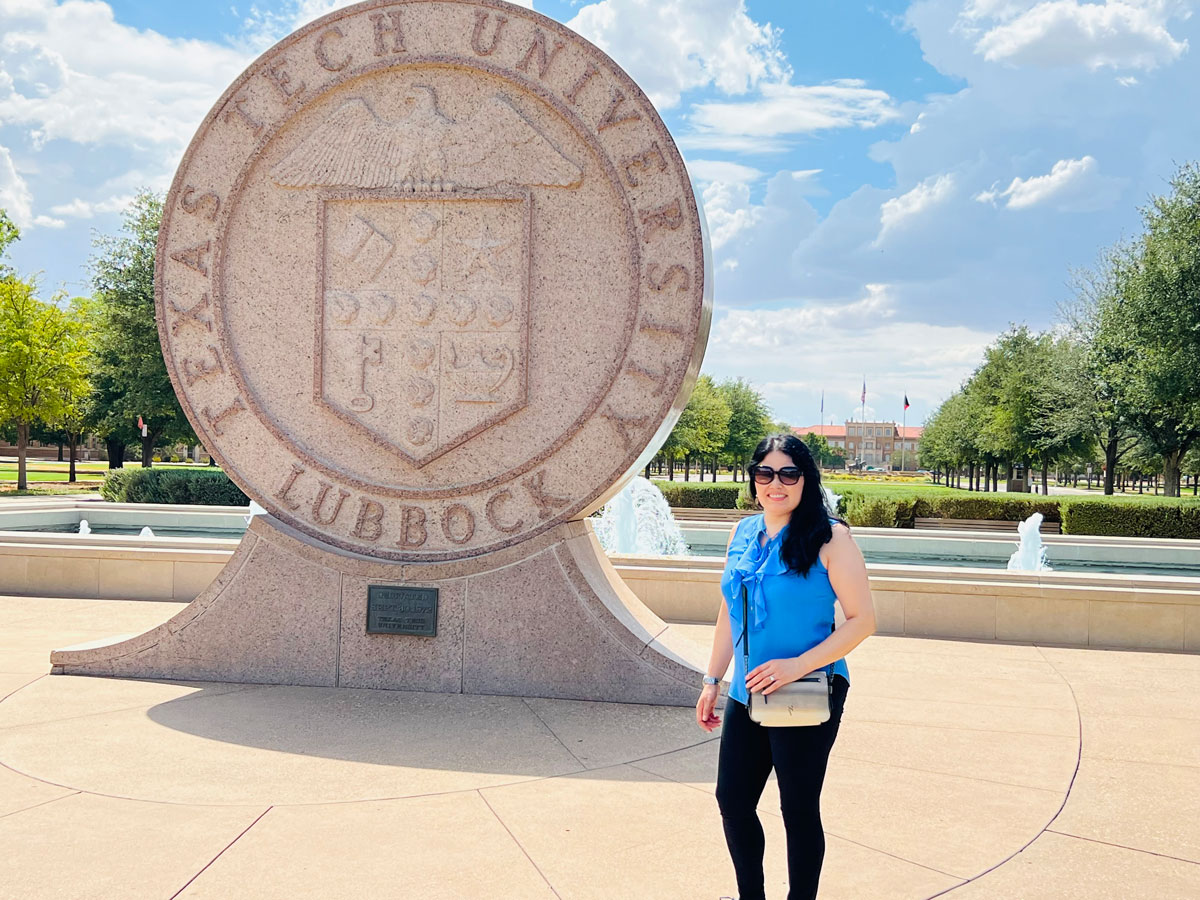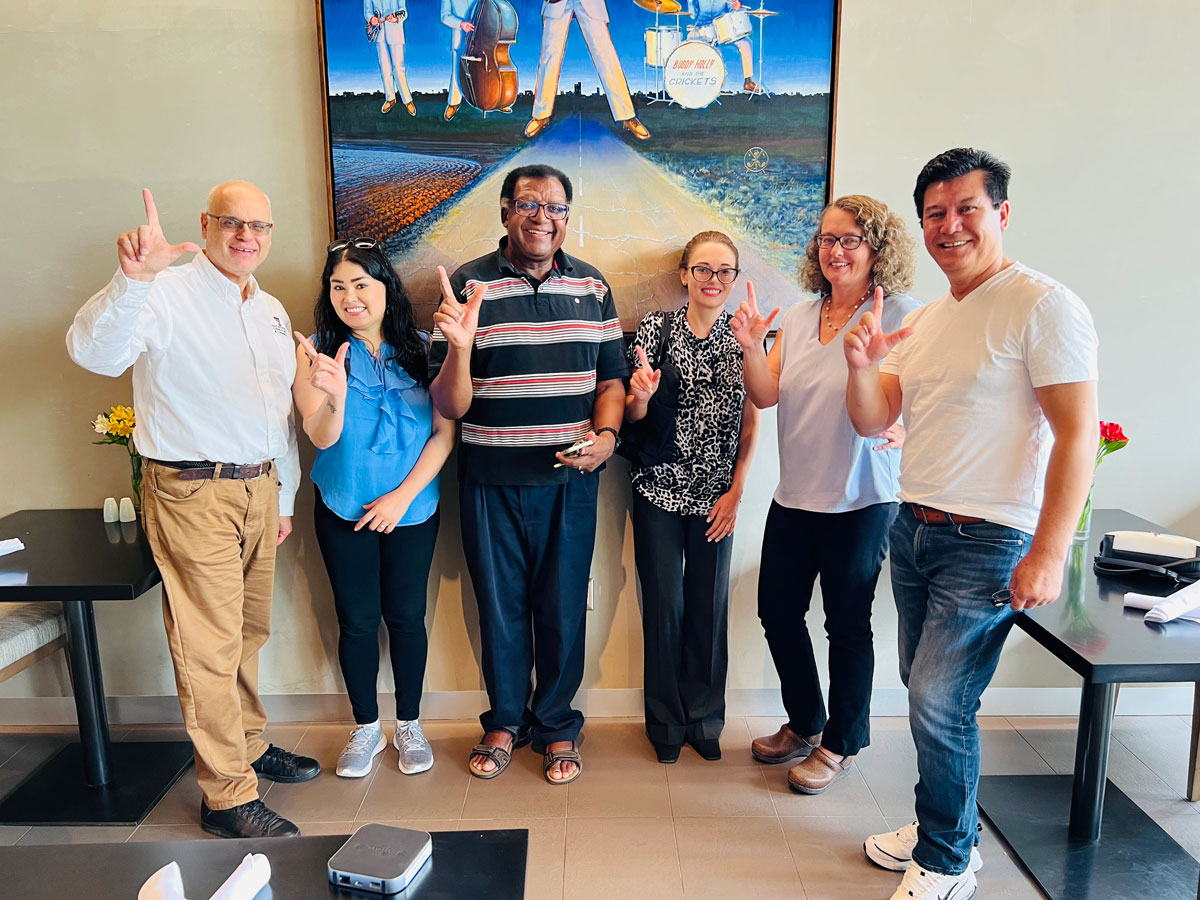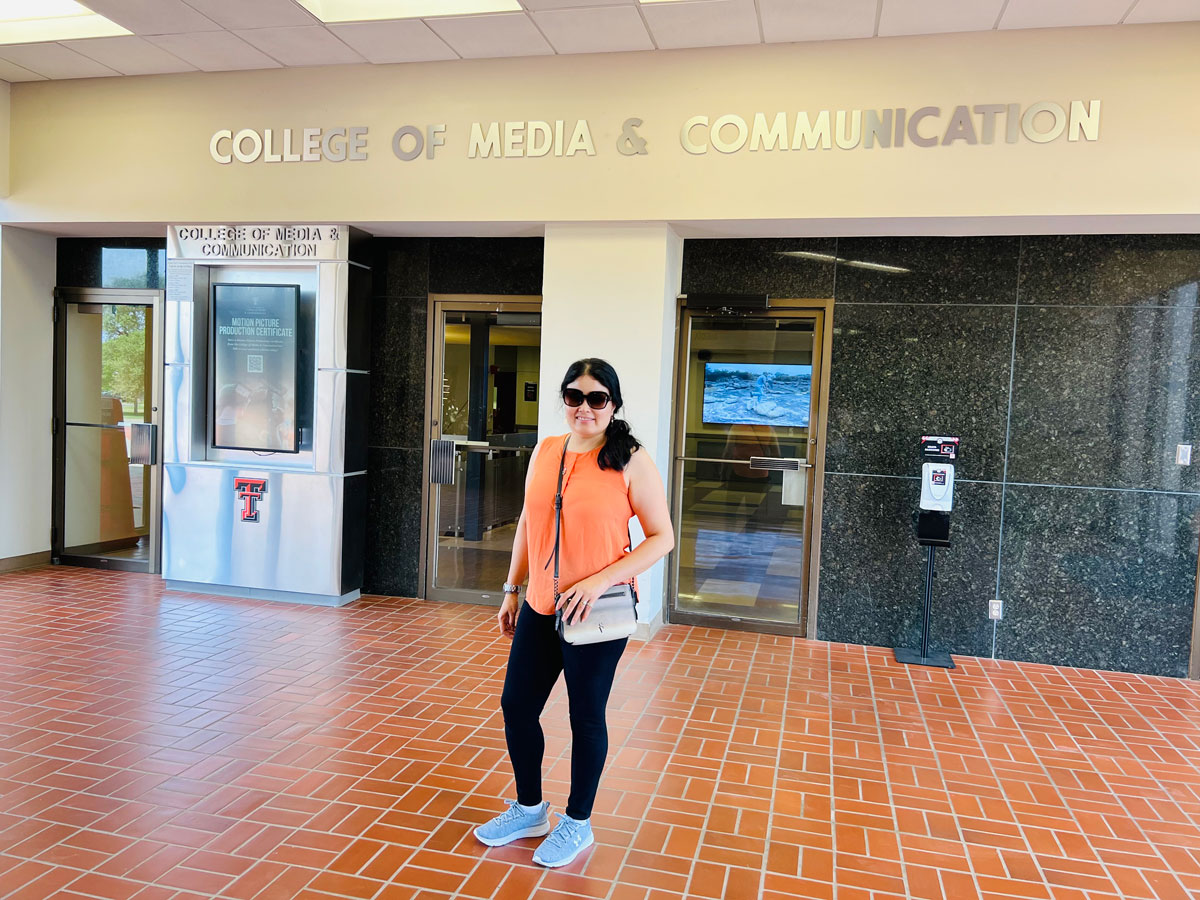
An award-winning journalist and refugee from Afghanistan has chosen to further her education and restart her career with the College of Media & Communication at Texas Tech.
Saleha Soadat fled Afghanistan in August 2021 following the Taliban's violent takeover of the Afghan government. After 30 years in Afghanistan, including over a decade working in the journalism industry, she came to the United States with only a backpack, determined to continue her work telling the stories of the realities of Afghan women under the Taliban regime.
“In my opinion, journalism in countries like Afghanistan, where human rights are being trampled on every day by groups like the Taliban, is not only a profession but also a human responsibility,” said Soadat.
Soadat studied journalism at Kabul University and has since worked in print, radio and TV media in Afghanistan. Despite the many obstacles Afghan women face, she established herself as one of the top journalists in the country.
She was named Journalist of the Year in 2013 by the Afghanistan Senate, Best Reporter in 2014 by the Afghanistan Parliament, and a Peace Reporter by the United States Institute of Peace.
“I have carefully selected journalism not only as my profession but also as a passion, and I will continue to do so by devotedly raising the voices of Afghan women and girls around the world with my pen,” said Soadat. “Not only the Afghan women, rather for social justice, for every individual around the world to make the world a better place to live.
Unfortunately, Soadat's work as a prominent journalist—and as a female among active oppression—put her at risk of facing violence at the hands of the Taliban. According to Human Rights Watch and the Afghan Journalists Security Committee, Afghan journalists are routinely being targeted by Taliban officials who believe it is their “religious duty” to kill journalists, who they perceive as being corrupted by Western values and stand as an obstacle to their mission of establishing a pure Islamic state.
Threats, assaults, and even murders of Afghan journalists are at an all-time high and have led to media personnel leaving the profession—or the country—in droves, while the ones who stay are pressured to self-censor their reporting.
In addition to being a female journalist, Soadat was also at risk due to her ethnicity. She is part of the Hazara ethnic group, a minority group in Afghanistan frequently targeted for violence from the Taliban and the Islamic State.
“I was vulnerable for three reasons,” said Soadat. “I am a woman, I belong to the Hazara ethnic group and I am a journalist. For the Taliban, these three groups of people are a perfect excuse to kill. “
After discussing with her family, Soadat made the impossible decision to flee her home country. After a grueling trek to the Kabul Airport, she was evacuated on an American military aircraft and eventually made it to the United States, where she found an opportunity to continue her education through the Texas International Education Consortium (TIEC).

TIEC works with 35 universities across Texas to increase internationalization of higher education in the state. In 2021, TIEC launched a fellowship program to bring Afghan evacuees to Texas universities. So far, the non-profit organization has placed nine fellows, mostly journalists, at universities across the state.
“We were really looking a lot at the journalism field, because those are the people who were super at-risk and ended up [in the U.S.],” said Robin Lerner, president and CEO of TIEC. “I am so thrilled that we have so many journalists in this fellowship… The power of advocacy and the power of reporting is so huge.”
Working alongside Lerner, Professor and Dean David D. Perlmutter, Ph.D., helped bring Soadat to the College of Media & Communicaiton.
"Ms. Soadat is the living embodiment of a journalist dedicated to the truth and the uplift of her people,” said Perlmutter. “Her work is world famous, and her courage is exemplary. We know our faculty, students, and staff will gain much from the rich engagement of her presence."
Perlmutter also collaborated with other offices in the university to help bring Soadat on board. Mark Sheridan, Ph.D., dean of the Graduate School, assisted in the statewide efforts assoicated with TIEC.
“I'm delighted that we have a new agreement with the Texas International Education Consortium to support Afghan refugees,” said Sheridan. “This allowed us to provide access to our graduate programs to promising students like Saleha Soadat.”
Soadat is studying to get her master's in mass communication. She said when she completes her education, she plans to continue her work as an international journalist to shed light on the reality of Afghan women and girls under Taliban rule.
“I was born and raised in Kabul, and throughout my life I experienced inequality, discrimination, injustice, and civil war,” said Soadat. “After 9/11 and the arrival of US forces and the international community, comparatively myself and women in Afghanistan were hopeful and got the opportunity to get education and grow professionally.”
But after the withdrawal of U.S. forces from Afghanistan in the summer of 2021, the Taliban exploited that opening and overthrew the Afghan government. With the reinstatement of Taliban rule, Afghan women and girls once again found themselves without basic human rights and at risk of violence at the hands of the Taliban.
Soadat said the brutal violence against Afghan girls was illustrated on Sept. 30, when a suicide bomber killed at least 52 people at an educational center in western Kabul. According to the Associated Press, most of the victims were Hazara teenage girls taking a university practice exam, highlighting the danger women face in trying to get an education under the Taliban regime.
“The Taliban and their ideology see women as provoking sins,” said Soadat. “They don't like women in society and even hate to hear the noise of their sandals. Afghan women and girls do not have the right to work, no right to study, and no right to choose their outfits… I want the American people to support the people of Afghanistan for the sake of justice and equality.”
While she is grateful to be in America, Soadat is still haunted by the reality she narrowly escaped. She began working as a journalist again to tell the stories of the women who have fled the Taliban—and the ones left behind.
“I am physically in America, [but] my mind is still in Afghanistan,” said Soadat. “Outside of Afghanistan, the world is only thinking about how to deal politically with the Taliban. Afghan women are left alone in a hell called Afghanistan, and there is no hope for the future”
Nonetheless, she intends to continue her duties to her people as she carries their memory and that of her homeland with her every day.
“I miss my childhood, my friends and family, the feelings of belonging,” said Soadat. “Besides all the injustice, insecurity, and everyday bombing, I grew and learned how to survive and struggle for survival. I miss my home, my job, and even my car that I used to go to the office and come back home. My beautiful kitchen, which we had just built a year ago, where I cooked dinner every night for my mother and family. Even behind the dusty alleys of my country. It's hard to imagine that you will suddenly lose everything in a couple of days and must leave your country with a single backpack and start from scratch in a new country.”

